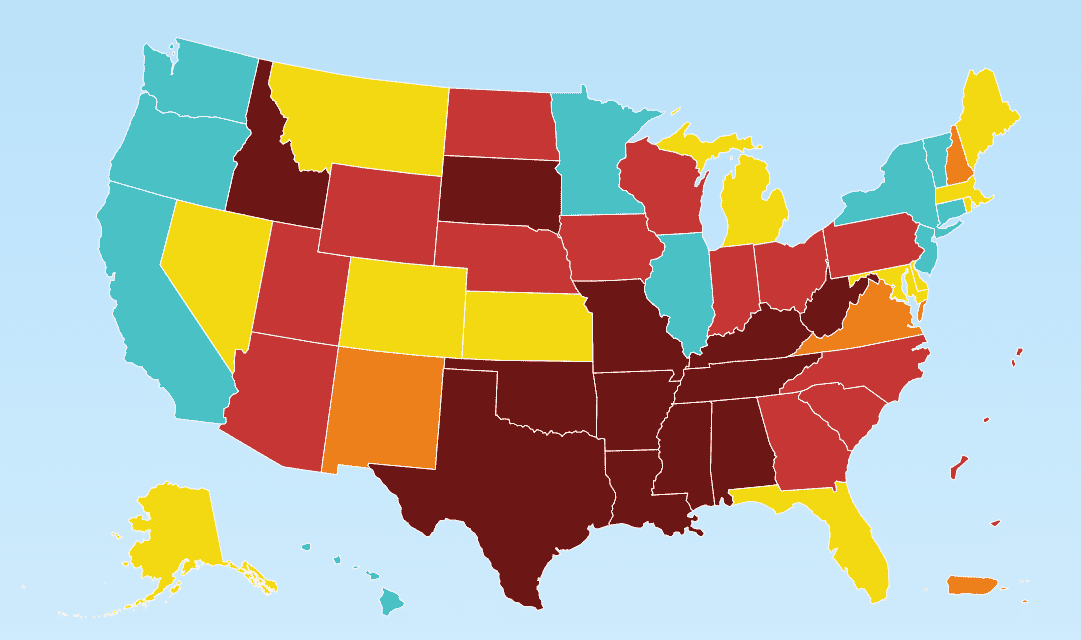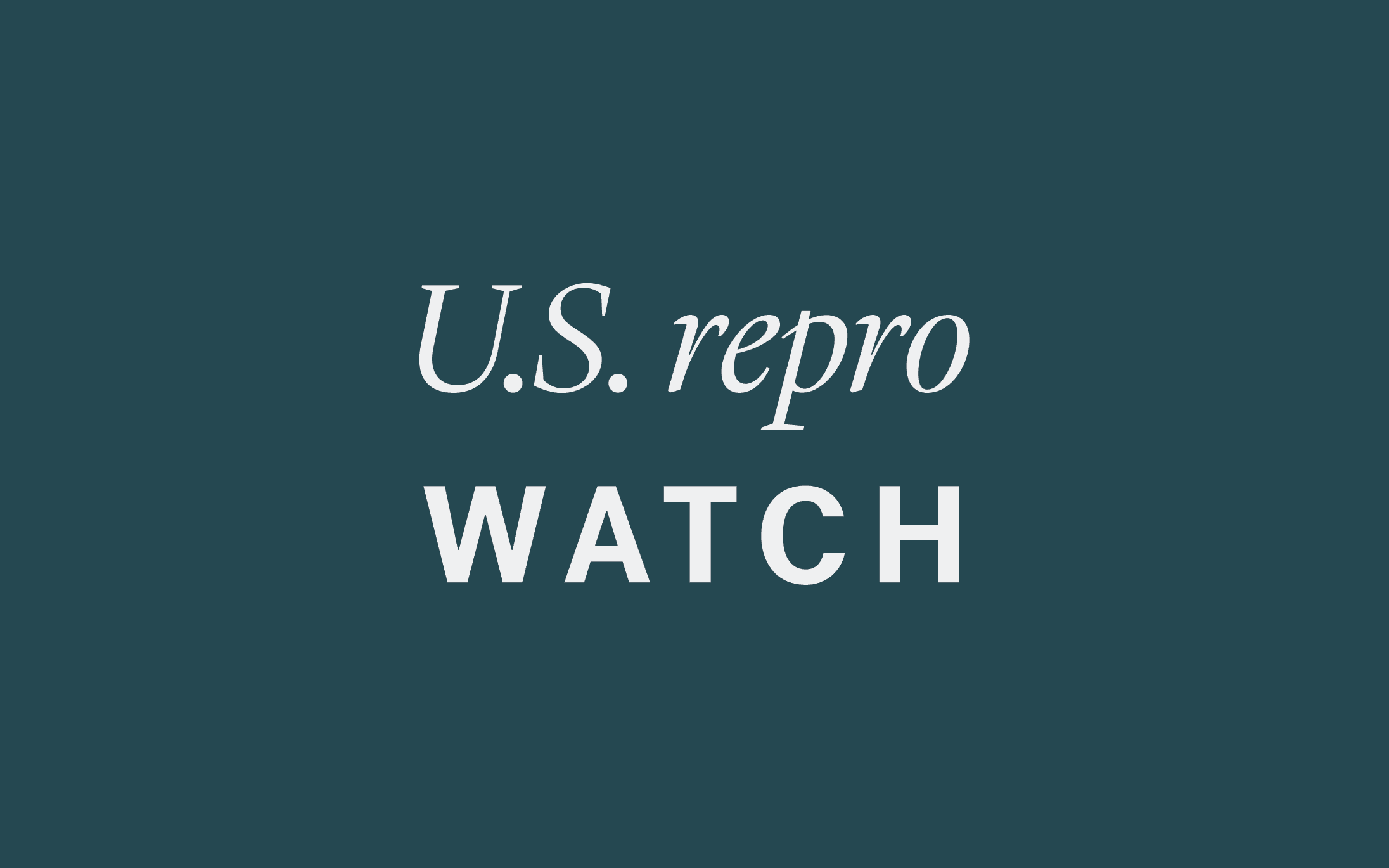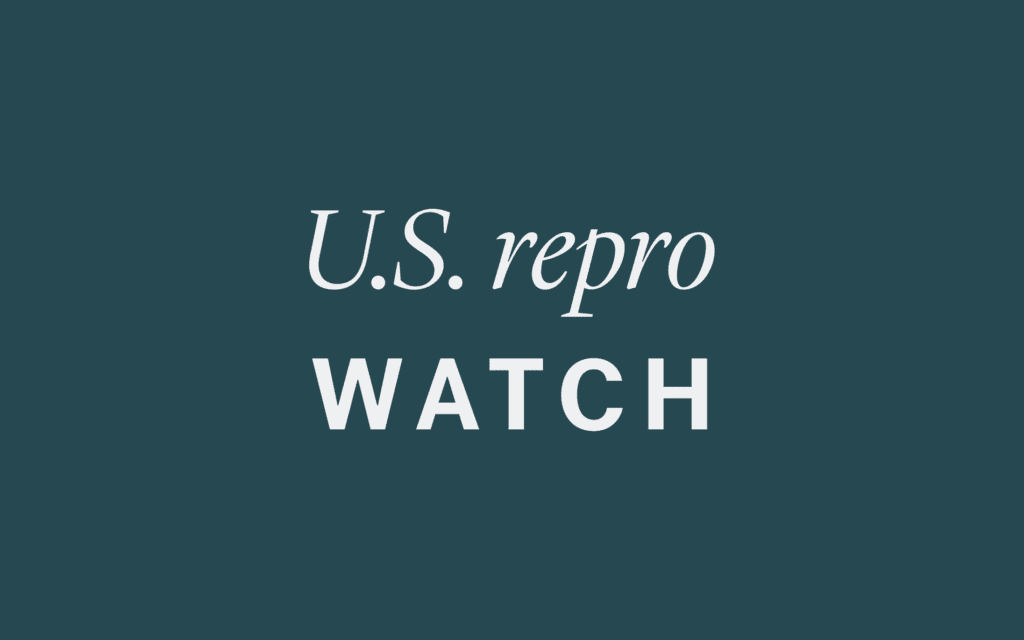U.S. Repro Watch, March 22
This week's top 4 news items on U.S. reproductive rights.
“U.S. Repro Watch” provides periodic updates on news of interest on U.S. reproductive rights. Here are four recent items you won’t want to miss:
1. The Oklahoma Supreme Court recognized that the state constitution protects the right to abortion in life-threatening situations.
- In its March 21 ruling in a case brought by the Center and its partners, the court wrote that “the Oklahoma Constitution creates an inherent right of a pregnant woman to terminate a pregnancy when necessary to preserve her life” and that doctors should be able to use their own medical judgment to determine whether to provide an abortion. In doing so, it struck down S.B. 612, one of two total criminal abortion bans.
- However, the court let stand the state’s 1910 pre-Roe criminal ban, leaving abortion care unavailable for most Oklahomans.
2. The fight to protect medication abortion is ramping up across the country.
Read more.
Medication Abortion: Frequently Asked Questions
Find out more about this safe, effective method for ending a pregnancy, which has been critical to advancing reproductive autonomy worldwide.
- A group of nearly 20 senators urged the nation’s largest retail pharmacies, including Walgreens, to ensure access to mifepristone, one of the two drugs used in medication abortion.
- At the same time, 15 governors from states including California and North Carolina sent a letter to retail pharmacies, asking them to share their plans for dispensing mifepristone.
- These efforts to safeguard access to the drug come the same week that Judge Matthew Kacsmaryk heard arguments in a case that could remove mifepristone from the market nationwide.
3. States are continuing to push abortion restrictions. . .
- Wyoming Gov. Mark Gordon signed a law banning abortion pills in the state. The law is set to take effect in July and includes penalties of up to six months’ imprisonment and a fine of up to $9,000. Gordon also allowed another sweeping measure banning all abortions to become law without his signature; the total ban took effect March 19.
- Utah Gov. Spencer Cox signed a law banning the operation of abortion clinics by January 2024. The new law is set to take effect on May 3, at which point abortion clinics will not be able to get new licenses even while abortion remains legal in the state.
- South Carolina lawmakers are considering a bill that could punish people who get abortions with the death penalty. While 24 co-sponsors originally backed the bill, nine have recently withdrawn their support.
After Roe Fell: Abortion Laws by State
Explore this interactive map to learn more about each state’s abortion laws and policies, updated in real time.
4. . . . as well as protections.
- In Ohio, state officials approved a proposed ballot initiative seeking to enshrine abortion rights into the state constitution. The measure now needs at least 413,000 signatures to be placed on the November ballot.
- Ohio’s Supreme Court declined to weigh in on the constitutionality of the state’s six-week ban, but agreed to review two other questions in a lawsuit challenging the law: whether the state’s Attorney General can appeal a block on enforcement and whether abortion clinics have legal standing to challenge the ban.
- New Mexico lawmakers passed a bill March 17 to safeguard abortion providers and patients from legal actions by other states, sending it to Gov. Michelle Lujan Grisham’s desk for signature. Grisham also signed a law last week prohibiting local municipalities from banning abortion.
- The Vermont Senate passed a bill March 17 that aims to protect health care workers from disciplinary action for providing abortions and gender-affirming health care.
Coming Up
March 27, 9 a.m. CT/10 a.m. ET: Hearings on abortion restrictions in Kansas.
- The Kansas Supreme Court will hear arguments over several abortion restrictions, including a ban on the standard abortion procedure used after about 15 weeks of pregnancy and other medically unnecessary regulations. The two hearings will be held back to back. A livestream will be available on YouTube.
March 28, 11 a.m. ET: Hearing on Georgia’s six-week abortion ban.
- The Georgia Supreme Court will hear arguments over the state’s ban on abortion after about six weeks of pregnancy. The Center and partners are arguing that the ban violates the state constitution.
- In November, a lower court struck down the six-week ban, but the state’s high court allowed the law to go back into effect as the court considers the case. A recording will be available on the Georgia Supreme Court’s website.
U.S. Repro Watch
Read previous U.S. Repro Watch posts.
Did you know?
Several groups, ranging from the American Medical Association to community advocacy groups, submitted amicus briefs to the Florida Supreme Court in support of an ongoing challenge to the state’s 15-week abortion ban.
One brief detailing the impacts of the law on Latina Floridians recounted the story of a woman named “A.L.,” who discovered at 15 weeks pregnant that her fetus was not likely to survive due to a fatal genetic condition known as Trisomy 18. Despite the fact that her own health was also at risk, A.L.’s access to abortion in the state was delayed due to fear among doctors that they could face prosecution. Since most states surrounding Florida also ban abortion, A.L. was forced to travel to Washington, D.C. to get the care she needed. Earlier this month, Florida lawmakers proposed a bill banning abortion earlier, after about six weeks of pregnancy.




